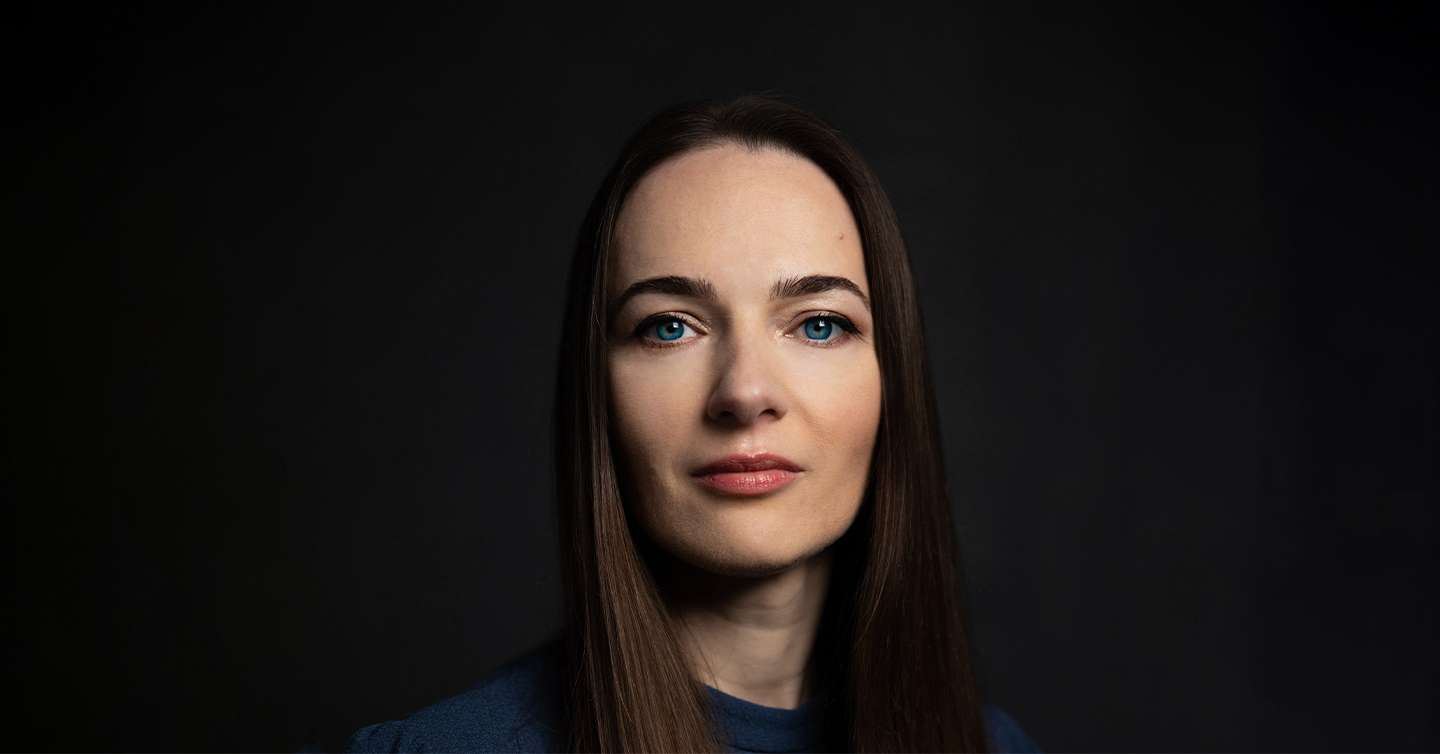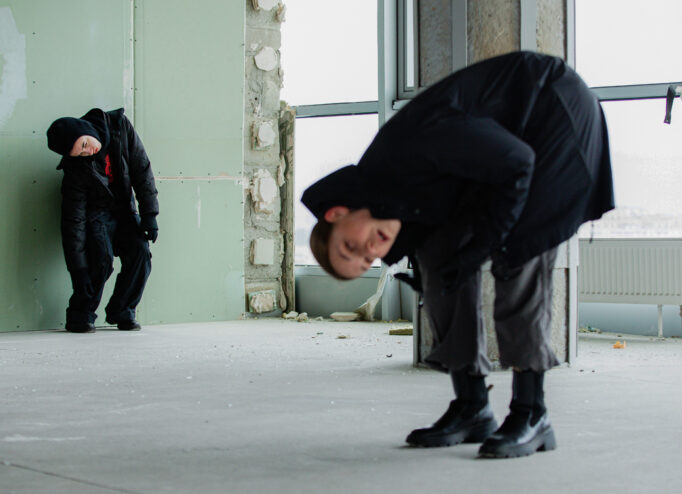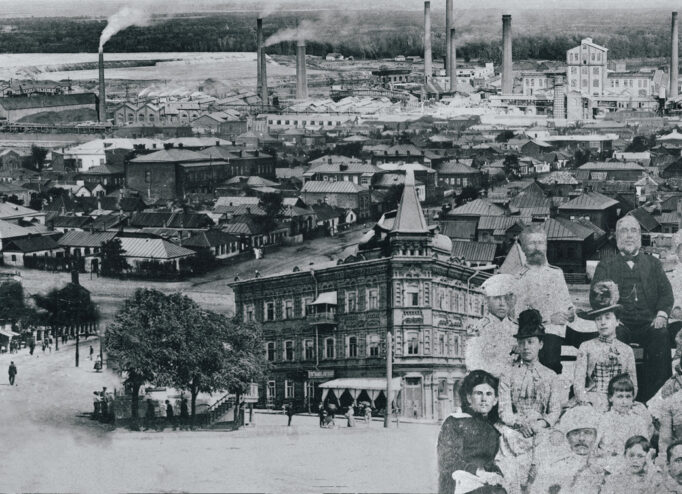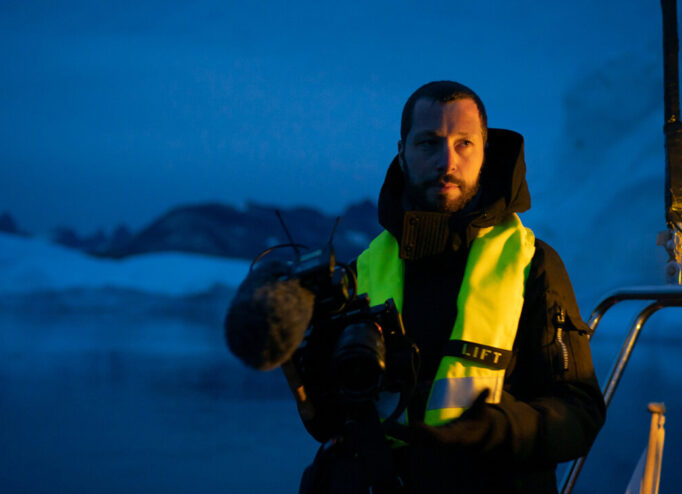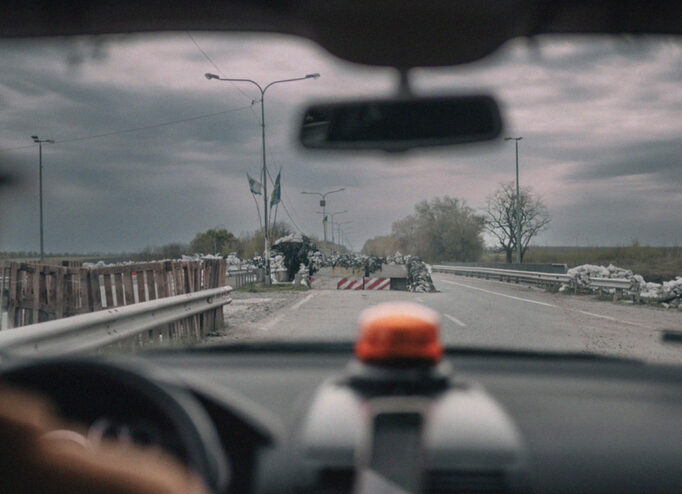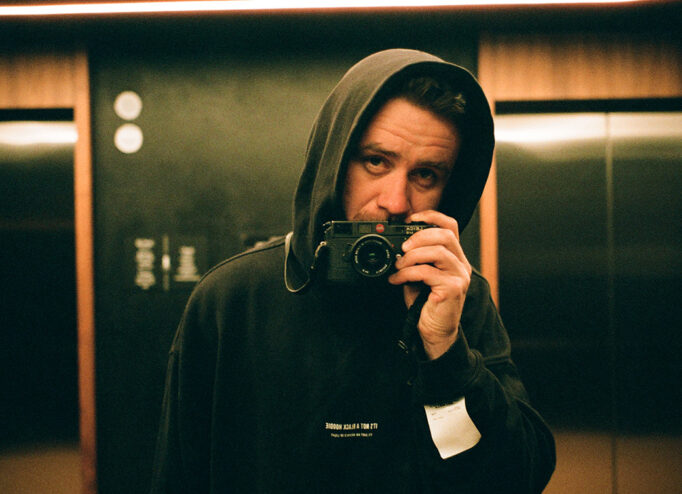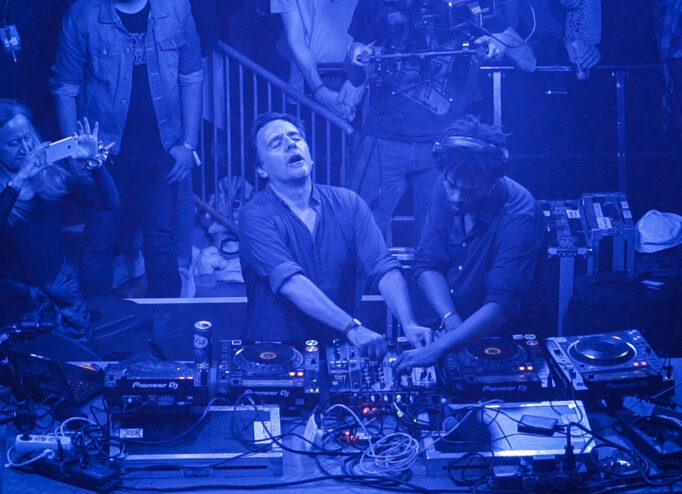The MOT art space hosted a screening of the short film “Euromaidan SOS”, followed by a Q&A session with Nobel Peace Prize laureate Oleksandra Matviichuk, who was also a co-founder of the volunteer organization Euromaidan SOS. She told about the emotions from the film, the influence of dissidents on the desire to engage in human rights activism, reflected on the value dimension of war, the consumers of values, and explained the need to reform the international security system. DTF Magazine provides some of the key points of the speech.
Read more about Oleksandra Matviichuk
Oleksandra Matviichuk is a human rights defender who works on issues in Ukraine and the OSCE region. At present, she heads the human rights organization Center for Civil Liberties, and also coordinates the work of the initiative group Euromaidan SOS.
The Center for Civil Liberties’ activities aim to protect human rights and establish democracy in Ukraine and the OSCE region. The organization is developing legislative changes, exercises public oversight over law enforcement agencies and the judiciary, conducts educational activities for young people, implements international solidarity programs and documents war crimes in all regions of Ukraine which became the targets of attacks of the russian federation. In 2022 Center for Civil Liberties which Oleksandra Matviichuk head’s for received the Nobel Peace Prize.
About the film Euromaidan SOS
It’s been a long time since I’ve seen this movie, and I’m overwhelmed with emotion again because Euromaidan is a milestone in my life. Not that I want to relive these events again, but we went through it very decently. We were people who fought in different cities for the right to build a country where everyone’s rights would be protected, the authorities would be accountable and controlled, the courts would be independent and fair, and the police would never think of dispersing peaceful student demonstrations again.
About the influence of dissidents on the desire to become a human rights activist
I always got lucky with good people. During my high school years, I met Yevhen Sverstyuk, a famous philosopher, dissident, and prisoner of Soviet camps. He surrounded me with unprecedented care and support, and introduced me to the dissident circle. There I met some fantastic people I had only read about in books before.
They were very simple, humble, kind of superior, because these people said what they thought and did what they said: like it’s so easy, but at the same time super difficult. You look at their biographies and you realize that they were fighting for freedom and human dignity, and that had a huge impact on me as a schoolgirl. That’s actually why I decided to study law, to fight injustice, and that’s how I ended up in law school.
About the reform of the international security system
This is not just a war between Russia and Ukraine, this is a war between two systems, authoritarianism and democracy, and at the center of this war is the question: How will we protect people? With brute force? Or are only those people who live in a country with a powerful defense capability, with nuclear weapons, some kind of robots instead of the army and other weapons of mass destruction protected? Or can we in the twenty-first century protect people with instruments artificially invented by humankind, such as law, that make us more civilized and our future more secure and predictable?
The architecture of international organizations has to make sure that this law is respected, and if it is violated, to restore the balance, to punish those responsible, and to stabilize the international order. And now this is in the spotlight, because people around the world are watching the situation in Ukraine.
Thoughtful people begin to ask themselves: what will happen tomorrow if today a member state of the UN Security Council, the organization created to prevent war, starts a war?
If the system cannot stop the war, or all this level of brutality that Russia is inflicting on the Ukrainian people, then there is something obviously wrong with our security architecture. Perhaps it doesn’t exist, perhaps we are living under the illusion that it still exists. And for me, that illusion was debunked when the UN secretary general came to Kyiv on an official visit, and on the same day a russian missile hit a residential building, killing our colleague, journalist Vira Hyrych.
With this war, Putin is trying to prove that democracy, the rule of law, and human rights are fake values that protect nothing and no one. This is no longer a question of Ukraine, but of countries where people live freely and profess a democratic way of making decisions about themselves — they must respond to this cynical challenge.
If we don’t make a decision and respond, it will affect the development of humanity as a whole. Then it will become obvious to governments that only nuclear weapons protect everyone. A few dozen countries that can hypothetically create it, will create it, and with the development of the latest technology, when artificial intelligence writes poems, makes presentations for us, we can only imagine what will happen when technology is widely used in the military sphere as well. It will be a world where it is dangerous for everyone to live in. So one of my messages at the Nobel Prize was that we must begin a radical reform of the international security system. What was created in the last century does not work in our modern world.
About consumers of democratic values
The new generations born after World War II in developed democracies, where everything is more or less normal, are already more consumers of these values than carriers.
When you have not fought for values, you can often not understand their meaning. So in recent years, political forces that openly questioned the values of the Universal Declaration of Human Rights have begun to gain traction in such countries, and they have been supported by the people.
They exchanged their values of freedom, without understanding their meaning, for something else. I asked myself: what are they exchanging them for? What is now the enemy of human rights in the most advanced societies? I assumed it might be promises of economic gain, or, for example, the illusion of security, or some promise of regaining former greatness.
In the end I came to the conclusion that perhaps the most serious opponent is comfort. That is, people are willing to give up a lot of freedom in exchange for their comfort. When they fight against injustice and you look closely at the details, you see that it is a fight to create a protected space around themselves, not to solve the problem as a whole. This is what we have seen in Western societies.
But suddenly, after the beginning of this full-scale Russian invasion of Ukraine, a reassessment of values begins, because people realize: political decisions based on economy, security, comfort in the long run lead to terrible consequences. And that everything has a price. I really want to believe that this reassessment [in Western societies] will become massive.
About the value dimension of war
The future is not guaranteed. We don’t know how long it (the war and the situation caused by it — Note from DTF Magazine) will go on.
If we talk about these realities, I will say again that war has a value dimension. From the moment it began, it is clear what we are fighting for. I realize that for most people the war started in February 2022, but it actually started in February 2014. And not because of our desire to join NATO: we had no chance to join the Alliance in 2014, and even if we had that chance, it was much less than a year ago.
The war started because we got a chance to conduct a democratic transformation of Ukraine, because the authoritarian regime of Yanukovych fell and as a result of the Revolution of Dignity we got an opportunity to start building a society in which the rights of every person are protected.
As paradoxical as it may sound, when this idea of freedom came close to russia’s borders, putin started this war to protect his regime. Because Ukraine’s success in its democratic transformation will have a huge impact on what Russia and our region as a whole will look like.
To stop us, Putin started a war, occupied Crimea, occupied parts of the Luhansk and Donetsk regions, and eight years later launched a full-scale invasion. Why am I paying attention to this? If we say that this war is value-based and we are fighting for our democratic choice, then we need to be consistent with what we are fighting for. Because it makes no sense to win this war with Russia and turn into Russia — it would mean that Putin won anyway. He wanted to stop the democratic transformation. And we should not give him the opportunity to win this war, either in military dimension or in value dimension.
And I understand that this is a painful realization, especially for people who have spent eight years trying to keep themselves safe and ignore the horror of war. But I went through this ordeal in 2014–2015, and I think I can say that sometimes you have to be above your pain. Because it’s a path without development when you wallow in your feelings and sufferings and only feel like a victim.
After the war is over, we must build not a shaky structure, but a civilized world. And what we will be at the end of the war and what our starting positions will be depends very much on how we fight now.
About the trials for Ukraine
Democracy is always discussions, clashes of different opinions and ideas about how to manage public affairs and solve public problems. So discussions and sharp dialogue are normal, unlike some other things.
War unites people only in the beginning, and later divides people even more. Everything that was swept under the rug during the war, during this situation, will then reappear on the surface. I am really afraid of the stage of fragmentation in society, when there will be different groups with different visions and with different experiences, which for many will be traumatic and emotional.
This is the stage we will have to go through — it is a challenge, it will not be easy. But already now we need to practice humanity toward each other, in other words, we need to be gentler. If you are annoyed by another person’s opinion and don’t agree with it, don’t understand someone else’s actions — that’s normal, because people are different. But you have to be more gentle, if I may say so, with each other, because you don’t know what experience the person has had, and you don’t understand why this or that word has caused such a violent reaction.

